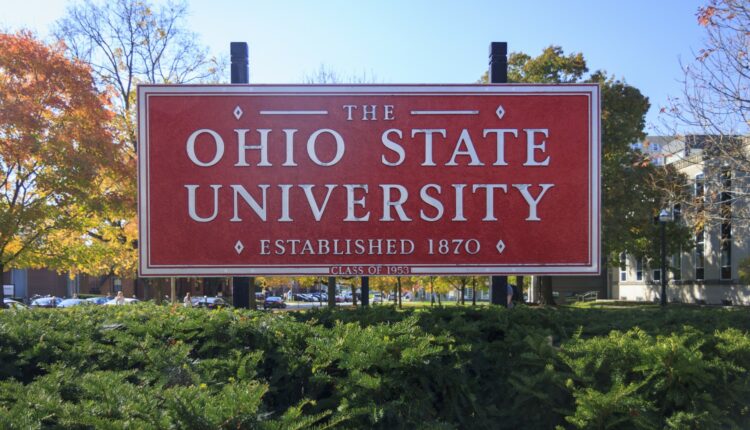Ohio State University: Ohio State to host documentary screening, discussion on Native American adoption
he Ohio State University College of Education and Human Ecology (EHE) will host a screening of the documentary “Blood Memory: A Story of Removal and Return,” which explores the issue of Native American children who are placed in foster care and adopted outside of their tribes.
The screening is at 5 p.m. Wednesday at the Fawcett Center, 2400 Olentangy River Road. The documentary will be followed by a Ashley Landers
Ashley Landers
discussion about research into the issue by Ohio State professor Ashley Landers and Sandy White Hawk, the subject of the film and a Native American woman who was removed from her Sicangu Lakota tribe and adopted by a white family at age 18 months in 1955.
In November, the U.S. Supreme Court is scheduled to hear arguments about the future of the 1978 Indian Child Welfare Act, a law that seeks to protect Native American children from being removed from their tribes for adoption or foster care.
Among the research that will be presented to the Supreme Court will be the work of White Hawk and Landers, an assistant professor of human development and family science. Landers works with White Hawk, director of the First Nations Repatriation Institute, to study the issue.
In a recent episode of EHE’s Inspire podcast, White Hawk and Landers discussed their research. Their work found that before the Indian Child Welfare Act passed in 1978, 25 to 35% of all American Indian children in the United States had been separated from their families and placed in foster homes, adoptive homes or institutions. Ninety percent of those placements were in non-Native homes.
“Most of us as adoptees do want to see where we come from. We want to see our image reflected to us,” White Hawk said. “We don’t say that. But it’s the draw. It’s the pull, because we’ve spent a lifetime looking into the mirror at our face, looking at the family that we’re in, and the community that we’re in, and we look like no one. So, we have to erase that face, create a new image to be OK with to look in the mirror.”
Through a contact at the University of Minnesota, White Hawk met Landers, then a doctoral student studying complex trauma and family reunification. Since Landers joined Ohio State in 2021, she and White Hawk have researched the impact of foster care and adoption on Native people. Some of the results have been filed in an amicus brief in the U.S. Supreme Court case.
The case, Haaland V. Brackeen, was filed by the state of Texas and several plaintiffs. The plaintiffs contend that the Indian Child Welfare Act’s preference for placing a Native American child in a foster or adoptive home of a Native American family discriminates on the basis of race and disadvantages non-Indian foster and adoptive families, in violation of the U.S. Constitution.
“The reality is that there are thousands of Native children who have been displaced from their homes. And this continues to be a problem across the country,” Landers said. “It is the systematic removal of Indian children and the implicit bias of the child welfare system that targeted Native families that makes this issue so pressing.”

